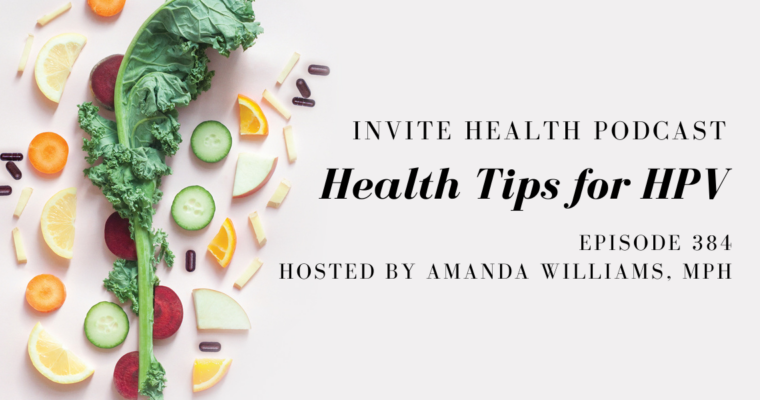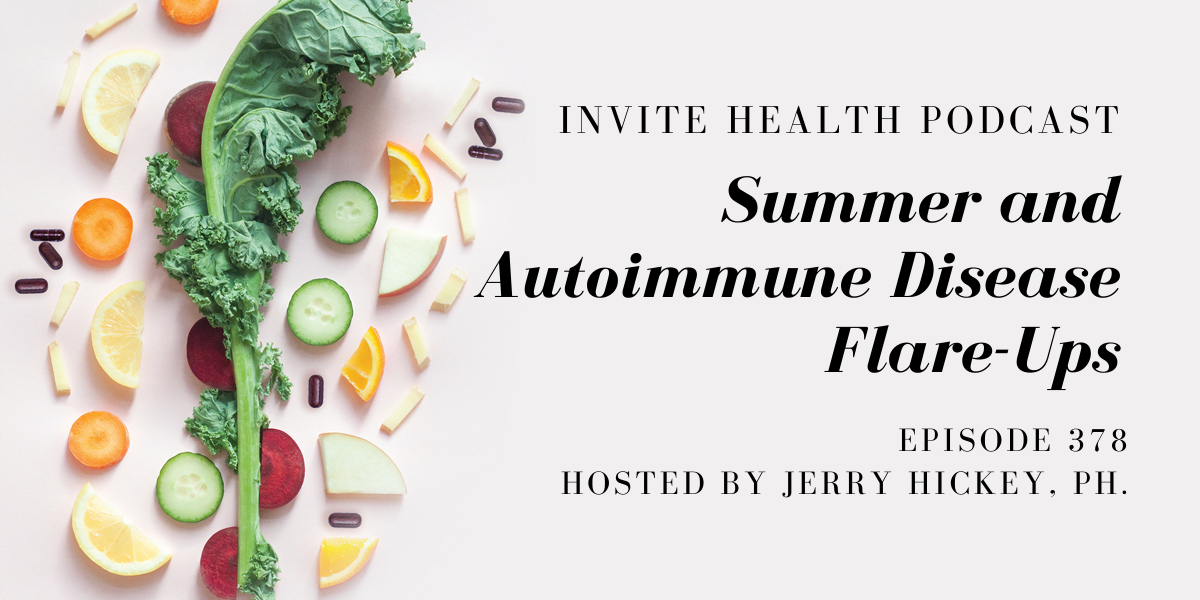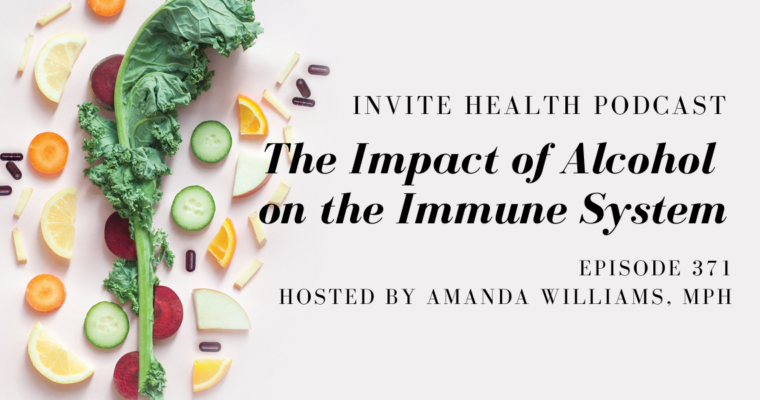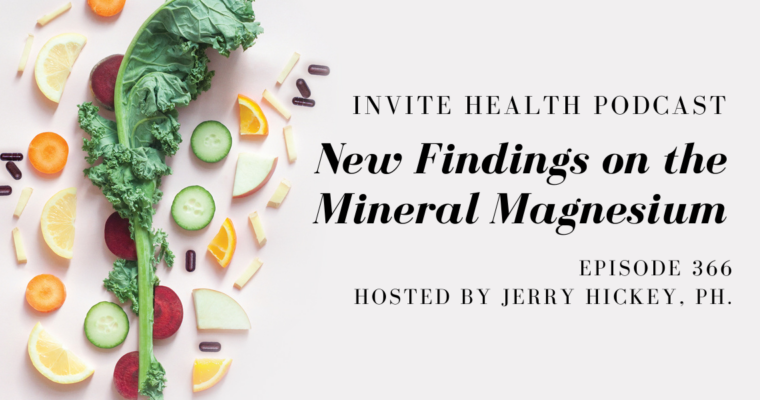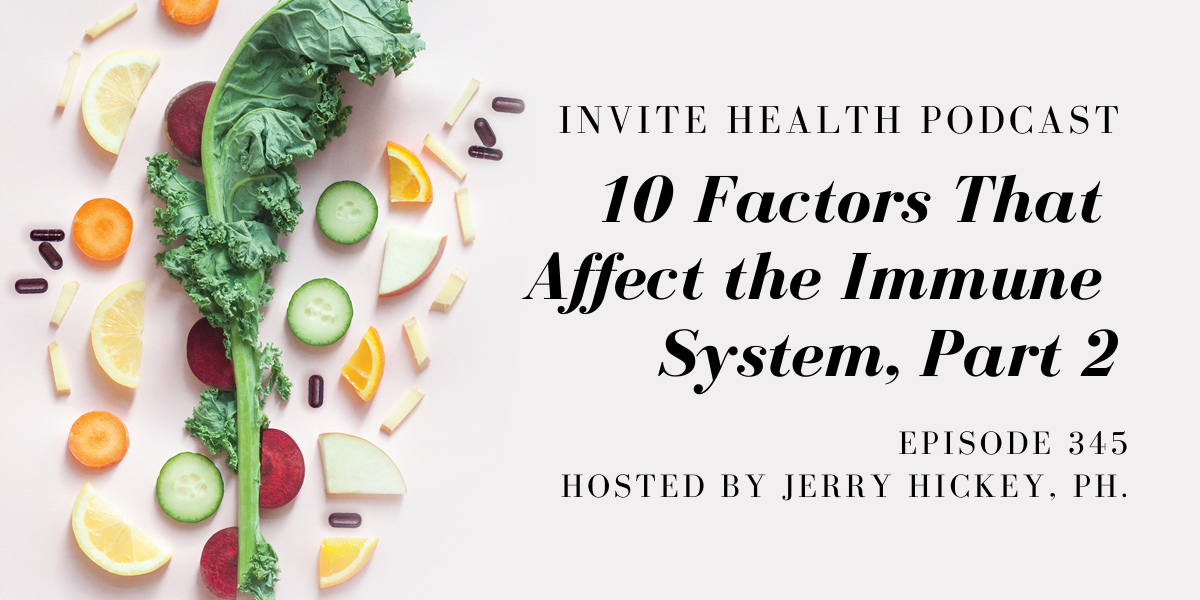autoimmune disease
InViteⓇ Health Podcast, Episode hosted by Jerry Hickey, Ph.
Subscribe Today!
There are about 80+ autoimmune diseases, diseases where your own immune system attacks your body and it can destroy your organs and tissues. For instance, in rheumatoid arthritis, your immune system attacks your joints, especially in your knuckles. This can deform your hands and cause swelling and severe pain.†
It turns out that people with certain autoimmune diseases can experience flare-ups when exposed to a lot of humidity, heat or ultraviolet radiation from the sun. Examples of these diseases that flare-up in the sun would be psoriasis, scleroderma, dermatomyositis, multiple sclerosis and rheumatoid arthritis. For some people with autoimmune diseases, the summer can be really rough because it can really trigger a flare-up that can make symptoms terrible.†
HOW TO MANAGE ECZEMA AND PSORIASIS – INVITE HEALTH PODCAST, EPISODE 272. Listen Now>>
Can the sun trigger autoimmune disease flare-ups?
People who deal with autoimmune diseases such as lupus have reported that the sun can trigger flare-ups for them. Some symptoms that they have shared included rashes on their face and body, very red cheeks, itchy scalp, headaches and even difficulty breathing.†
Dr. Jeffrey Carlin at the Benaroya Research Institute has explained that too much UV exposure can be toxic for anybody. When you get a bad sunburn, the sun kills cells on the surface of the skin. The body gets rid of these cells in a process called apoptosis, in which your cells basically self-destruct. This is followed by an immune response where white blood cells come in and get rid of the dead cells. This is when some people’s skin turns red and begins to peel until new, healthy cells replace the old ones.†
In people with autoimmune diseases, however, they have an overactive immune system, so when they are exposed to the sun and their skin cells go through apoptosis, it may trigger an immune reaction that’s too strong. Various immune cells are turned on, creating a total flare-up of the immune system that’s like throwing gasoline on a fire. Dr. Carlin said that this can cause people with lupus to have skin problems, as well as kidney issues, simply because their immune system went into overdrive and attacked healthy tissue.†

Protecting your body during the summer
If you suffer from an autoimmune disease, you have to be careful when you go out during the summer. You don’t want to take hot showers, you want to take cold showers. You don’t want to sunbathe. You don’t want to exercise outside on a really hot, humid day. You don’t want to use a sauna or a hot tub. Stay in the air conditioning and if you want to exercise, go swimming in a cool pool. Drink cold drinks and wear loose-fitting, lightweight clothing. Make sure to wear a broad spectrum sunscreen.†
There are also some supplements that can help with certain autoimmune diseases. Bio-Curcumin 5-Loxin comes at inflammation from two avenues. Resveratrol can be helpful for Hashimoto’s thyroiditis. This is an anti-inflammatory nutrient with small molecules that is very good for the thyroid. For rheumatoid arthritis, I recommend Cartilage HxⓇ, which contains undenatured Type II collagen and undenatured cartilage.†
A SUPERIOR ANTIOXIDANT: RESVERATROL – INVITE HEALTH PODCAST, EPISODE 45. Listen Now>>
In this episode, Jerry Hickey, Ph. discusses how the heat, humidity and sun of summer can impact people with autoimmune diseases. He also offers recommendations for nutrients and habits that can help protect the body.†
Key Topics:
- Examples of autoimmune diseases
- Reports on how the sun can trigger lupus and other autoimmune diseases
- Who is more at risk of developing autoimmune diseases?
- What happens to people with MS and lupus when exposed to the sun and heat
Thank you for tuning in to the InViteⓇ Health Podcast. You can find all of our episodes for free wherever you listen to podcasts or by visiting www.invitehealth.com/podcast. Make sure you subscribe and leave us a review! Follow us on Facebook, Twitter and Instagram at InViteⓇ Health today. We’ll see you next time on another episode of the InViteⓇ Health Podcast.



